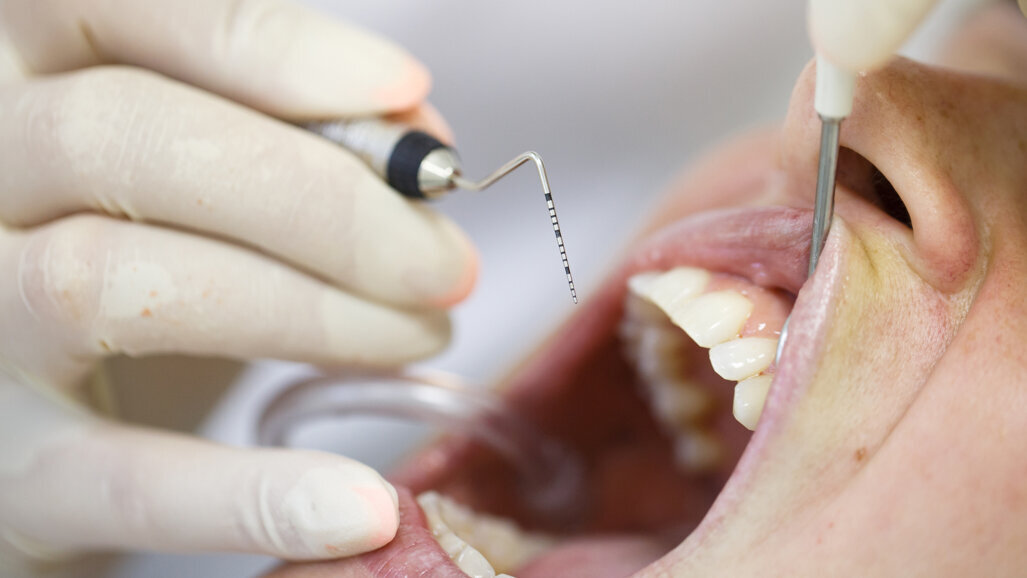HELSINKI, Finland: The prevalence of adult periodontitis continues to pose a major global public health challenge, highlighting the need for evidence on the effectiveness of periodontal treatment. According to the Finnish Health 2011 survey, 74% of adults had gingivitis, 64% had periodontitis and 21% had severe disease. Since these figures showed no improvement compared with those recorded in 2000, researchers at the University of Helsinki undertook a follow-up study to better understand how periodontal health evolves after treatment.
The study drew on data from 16,040 adults who underwent oral health examinations at Helsinki public dental clinics in 2009, and follow-up examinations were conducted between 2010 and 2015. Periodontal health was assessed using the Community Periodontal Index (CPI), applied to both the full mouth and six sextants. The researchers categorised changes in each sextant as having improved, remained the same or worsened between the baseline and follow-up visits.
The findings showed that only 4.6% of the participants had good periodontal health, whereas 24% presented with deep periodontal pockets. The most common condition present at both the baseline and follow-up examinations was the presence of calculus. Improvements in periodontal status varied by sextant, and the most favourable outcomes were observed in the maxillary anterior. Fifty-six per cent of the patients demonstrated improvement in at least one sextant, and 7% experienced improvement across all sextants. Patients with the highest CPI score had undergone more tooth extractions than those with lower scores, highlighting the impact of disease severity on treatment interventions.
Overall, periodontal treatment delivered by an oral healthcare team was associated with improved CPI scores across most sextants. The study found no significant interaction between treatment outcomes and chronic disease in general; however, poorer results were observed among patients with diabetes or severe mental disorders.
“Our results suggest that individuals with diabetes or severe mental disorders need different treatment pathways than those without these diseases, and men in particular should be supported to receive periodontal therapy as appropriate,” the authors wrote.
They concluded that undergoing periodontal treatment after an oral health examination leads to measurable improvements in periodontal health, especially when a greater number of treatment visits are completed. They further argued that their findings support the importance of the dentist informing all patients with signs of periodontal disease about the benefits of periodontal treatment, follow-up examinations and supportive periodontal therapy.
The study, titled “Effects of periodontal treatment on periodontal status in Finland: a register-based study”, was published on 18 March 2025 in Acta Odontologica Scandinavica.
Topics:
Tags:
ORADEA, Romania: Ongoing research continues to illuminate the plethora of ways in which oral and systemic health influence each other. While odontogenic ...
BOSTON, US: Around 120 participants from 27 countries gathered in Boston from 16 to 18 June for a landmark moment in implant dentistry, the first ...
EuroPerio11 was a milestone event for the European Federation of Periodontology (EFP) and for the scientific organisation’s new president. Since being ...
ANN ARBOR, Mich., US: As the number of dental implants placed globally continues to rise, so too does the clinical significance of understanding ...
KRIENS, Switzerland: For decades, dentistry has largely centred on intervention-based care—responding to disease rather than preventing it. However, a ...
Live webinar
Tuesday, 24. February 2026
19:00 CET (Oslo)
Prof. Dr. Markus B. Hürzeler
Live webinar
Tuesday, 24. February 2026
21:00 CET (Oslo)
Prof. Dr. Marcel A. Wainwright DDS, PhD
Live webinar
Wednesday, 25. February 2026
17:00 CET (Oslo)
Prof. Dr. Daniel Edelhoff
Live webinar
Wednesday, 25. February 2026
19:00 CET (Oslo)
Live webinar
Thursday, 26. February 2026
02:00 CET (Oslo)
Live webinar
Tuesday, 3. March 2026
17:00 CET (Oslo)
Dr. Omar Lugo Cirujano Maxilofacial
Live webinar
Wednesday, 4. March 2026
02:00 CET (Oslo)
Dr. Vasiliki Maseli DDS, MS, EdM



 Austria / Österreich
Austria / Österreich
 Bosnia and Herzegovina / Босна и Херцеговина
Bosnia and Herzegovina / Босна и Херцеговина
 Bulgaria / България
Bulgaria / България
 Croatia / Hrvatska
Croatia / Hrvatska
 Czech Republic & Slovakia / Česká republika & Slovensko
Czech Republic & Slovakia / Česká republika & Slovensko
 France / France
France / France
 Germany / Deutschland
Germany / Deutschland
 Greece / ΕΛΛΑΔΑ
Greece / ΕΛΛΑΔΑ
 Hungary / Hungary
Hungary / Hungary
 Italy / Italia
Italy / Italia
 Netherlands / Nederland
Netherlands / Nederland
 Nordic / Nordic
Nordic / Nordic
 Poland / Polska
Poland / Polska
 Portugal / Portugal
Portugal / Portugal
 Romania & Moldova / România & Moldova
Romania & Moldova / România & Moldova
 Slovenia / Slovenija
Slovenia / Slovenija
 Serbia & Montenegro / Србија и Црна Гора
Serbia & Montenegro / Србија и Црна Гора
 Spain / España
Spain / España
 Switzerland / Schweiz
Switzerland / Schweiz
 Turkey / Türkiye
Turkey / Türkiye
 UK & Ireland / UK & Ireland
UK & Ireland / UK & Ireland
 International / International
International / International
 Brazil / Brasil
Brazil / Brasil
 Canada / Canada
Canada / Canada
 Latin America / Latinoamérica
Latin America / Latinoamérica
 USA / USA
USA / USA
 China / 中国
China / 中国
 India / भारत गणराज्य
India / भारत गणराज्य
 Pakistan / Pākistān
Pakistan / Pākistān
 Vietnam / Việt Nam
Vietnam / Việt Nam
 ASEAN / ASEAN
ASEAN / ASEAN
 Israel / מְדִינַת יִשְׂרָאֵל
Israel / מְדִינַת יִשְׂרָאֵל
 Algeria, Morocco & Tunisia / الجزائر والمغرب وتونس
Algeria, Morocco & Tunisia / الجزائر والمغرب وتونس
 Middle East / Middle East
Middle East / Middle East







































To post a reply please login or register